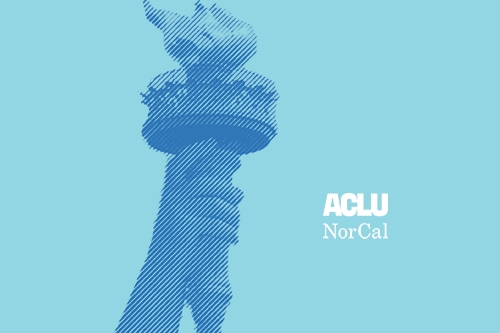Article Media

Demanding to know when, why, and how police are using mobile phone location data and deploying other surveillance technologies to track the people they are responsible for protecting and serving, the ACLU of California sent requests to more than fifty law enforcement agencies across the state today. Today's requests are part of the ACLU's Demand your dotRights Campaign, designed to make sure that as technology advances, our privacy rights are not left behind. The Public Request Act inquiries are being filed in coordination with 33 American Civil Liberties Union affiliates across the nation.
"The public has a right to know how and under what circumstances their personal information is being accessed by the government," said Peter Bibring, staff attorney with the ACLU of California. "A detailed history of someone's movements – or the email and photographs stored in their mobile device - is extremely personal and exactly the kind of private information that the Fourth Amendment was written to protect."
In addition to the collection of mobile phone location data, the ACLU of California is asking the same questions about law enforcements' use of information gathered from social networking sites, book providers, GPS tracking devices, automatic license plate readers, public video surveillance cameras and facial recognition technology.
Police agencies are being asked for information including:
- Statistics on how agencies are obtaining, using, storing and sharing personal information;
- The stated purpose for gathering personal information, guidelines on how long the data is kept, when and how it is deleted, and whether privacy safeguards exist;
- Training curricula, policies or protocol provided to officers to guide them in the use of these powerful new surveillance tools, including the capture of information from social networking sites like Facebook and Twitter;
- Whether police demonstrate probable cause and obtain a warrant to access mobile phone location data and to collect other detailed personal information, or take a dragnet approach that captures data on individuals who are not suspected of wrongdoing;
- The effectiveness of the use of digital surveillance in identifying or arresting suspects.
"Unless we require transparency on the part of police agencies, powerful new methods of surveillance will become powerful new methods of invading our privacy," said ACLU of California attorney Linda Lye.
Privacy is a top concern for mobile phone users for good reason:
- In just a 13-month period, Sprint received over 8 million demands for location information;
- Michigan police sought information about every mobile phone near the site of a planned labor protest;
- This spring, researchers revealed that iPhones were collecting and storing location information;
- Just last week, the general counsel of the National Security Agency suggested to members of Congress that the NSA might have the authority to collect the location information of American citizens inside the U.S.
With Congress considering new legislation to better safeguard location information and the U.S. Supreme Court poised to hear a case about the privacy of location data in the context of GPS tracking devices, it is essential for the American public to have a clear picture about when, why, and how law enforcement are obtaining sensitive location information.
"It's important to understand whether police agencies are using new surveillance technologies in ways that serve legitimate law enforcement goals and actually make us safer," said ACLU of California attorney David Blair Loy.
For a copy of the text of the Public Records Act Request sent to California police agencies, including police departments, sheriffs and highway patrol, click here.
More information about the national effort to collect similar information in other states across the nation is available at: http://www.aclu.org/locationtracking
Learn more:
Public Records Act letter to SFPD Chief Suhr
List of California Law Enforcement Agencies to Receive the Public Records Act Requests
